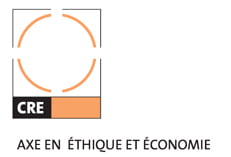
Our chance to reduce financial distancing
In the past, catastrophic events such as pandemics have increased solidarity and paved the way for a reduction of socio-economic inequality. Our policy response to Covid-19 should do the same both by cushioning the inegalitarian impact of the virus on the most vulnerable members of society in the short term and by asking those with higher incomes to carry a larger part of the financial burden in the long term.
__________________________________________
While Covid-19 is forcing us into social distancing right now, the impact this pandemic will have on our societal relations in the longer term is yet to be determined. In particular, how will economic inequality develop in the aftermath of this crisis?
Consider two opposite scenarios. Under the first, call it financial distancing, Covid-19 will exacerbate inequality. People with precarious jobs, the unemployed, the working poor, the self-employed, the sick, and others are the most vulnerable to the economic fallout of the virus. The government’s response, though well-intentioned, will not be enough and might inadvertently even increase inequality.
The second scenario, call it financial solidarity, is more optimistic. Covid-19 serves as a wake-up call as to how lop-sided the distribution of the economic pie has become in recent decades. In addition to providing a safety-net to people in need today, the government will ask well-to-do Canadians to contribute a larger share to the economic costs of this crisis through higher tax rates.
Contrary to the inevitability of social distancing, it is up to us to choose where between these two scenarios we want to end up. Faced with this choice, we should note, first, that avoiding further financial distancing requires effort and, second, that choosing financial solidarity would not only be just, but also feasible, after Covid-19.
The danger of business as usual
To those whose memory of the financial crisis of 2008 has not yet faded, today’s pattern is familiar. In crisis-mode, policy makers argue that we have no choice. In one sense, this is correct: we had to save the financial system then, and we have to help those hit by the Covid-downturn now. In another sense, however, the claim is false: we do have a choice when it comes to the policy instruments we use.
For example, we have learnt over the last decade that asset-purchasing programmes by central banks tend to fuel asset prices and thus benefit the rich. While the Bank of Canada’s use of this tool was moderate in response to the 2007 crisis, it already announced a purchase programme for several asset classes in response to Covid-19 last week.
On the fiscal side of things, taking on new debt in a time of crisis is par for the course. Yet, the effect on inequality depends on the details of both who benefits from the additional spending, and how progressive a tax system we rely on to pay down the public debt in future.
In short, a policy response to Covid-19 that is based on conventional wisdom bears the risk of exacerbating inequality in the coming years.
An opportunity to recalibrate
Those with an even longer memory will recall the days when Canada had a more progressive income tax schedule. Until 1971, Canadians who made more than $400.000 a year – roughly $2,56 million in today’s money – paid an 80% marginal tax rate above that threshold. Since then, due to misguided arguments that overestimate the individual economic contributions of some individuals, the consolidated marginal income tax rate has come down. Québec’s has the highest today at 58.75%. Due to multiple loopholes, the effective tax rate of the well-to-do is in most cases considerably lower.
When setting their personal financial interest aside, a majority of Canadians would agree that economic inequalities today are excessive and, by implication, that our tax system should be more progressive.
Most of the time, reform proposals for more tax justice will be dismissed as unfeasible. However, as Walter Scheidel argues in his prescient 2018 book The Great Leveler, severe disasters such as wars and pandemics historically lead to shifts in what is seen as feasible. They remind us of what we have in common; they encourage financial solidarity rather than financial distance. In this sense, Covid-19 opens up a unique window of opportunity to not merely deplore economic injustice in our society, but to actually do something about it.
When the immediate health crisis is over, we should work to reduce the financial distance that separates Canadians. Concrete measures could include a marginal consolidated tax rate of 75% for incomes above $2,5 million, abolishing the preferential treatment of capital income compared to labour income, and creating a wealth registry to make tax evasion more difficult.



